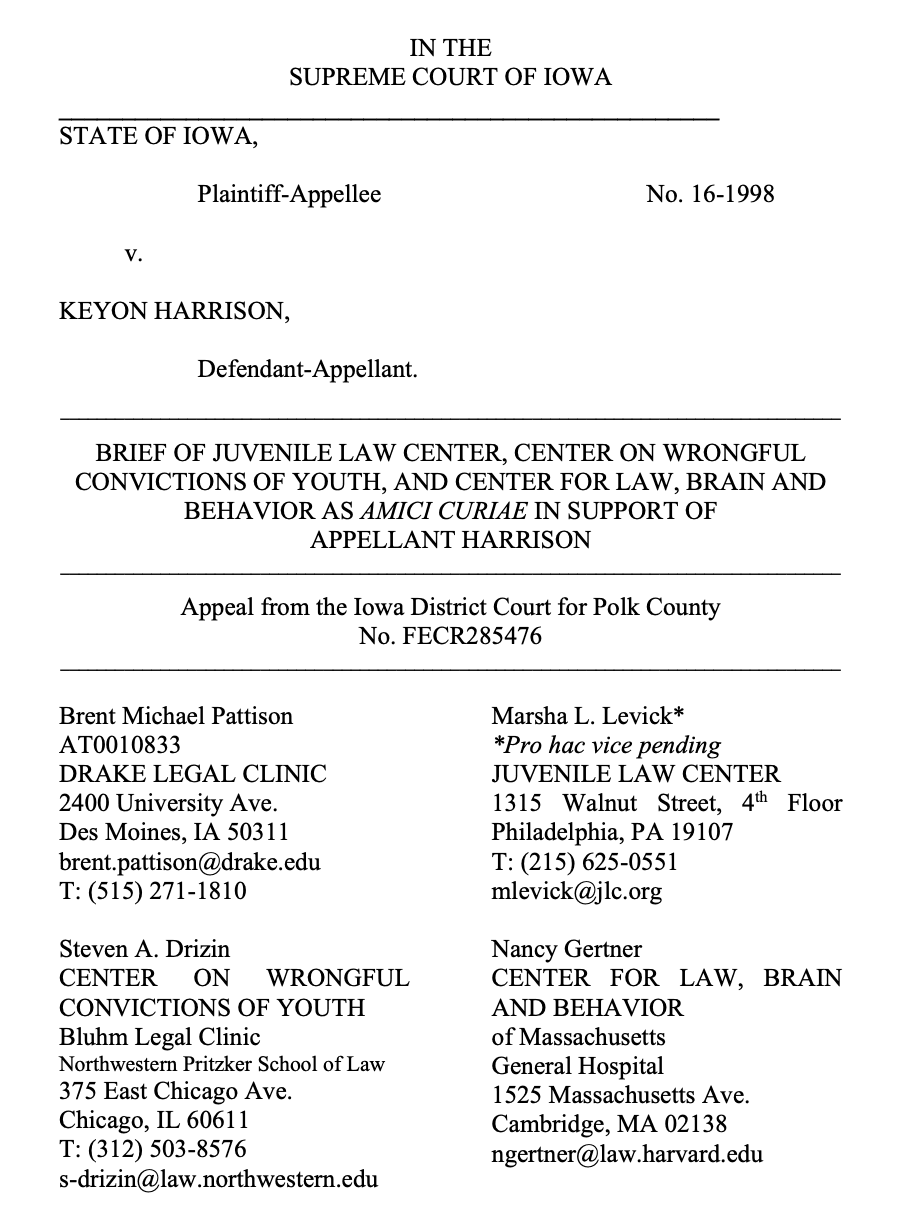
Summary of Argument
When Keyon Harrison was sixteen-years-old, an adult acquaintance used him as an accomplice in a planned robbery of a neighborhood drug dealer. Harrison’s role was to lure the drug dealer to a location where the adult co-defendant would rob the dealer. The robbery went terribly wrong when the victim fought with Harrison’s adult co-defendant, the two struggled over the co-defendant’s gun, and the gun went off killing the victim. Even though Harrison was not armed, did not participate in the fight that led to the victim’s death, and did not expect, intend, or foresee that the victim would be killed, he was charged with first degree murder in the adult justice system, convicted of felony murder, and sentenced to life with the possibility of parole. This case raises fundamental questions about the fairness of applying Iowa’s broad felony murder statute to juvenile defendants in light of new developmental and neuroscientific findings about the reduced culpability of juvenile offenders.It also raises concerns about subjecting juvenile defendants to the same mandatory sentencing schemes as those applied to adults convicted of felony murder.
Amici write to urge this court to remand the case because evidence, rooted in law and science, demonstrates that young people must not be held liable under the theory of felony murder.